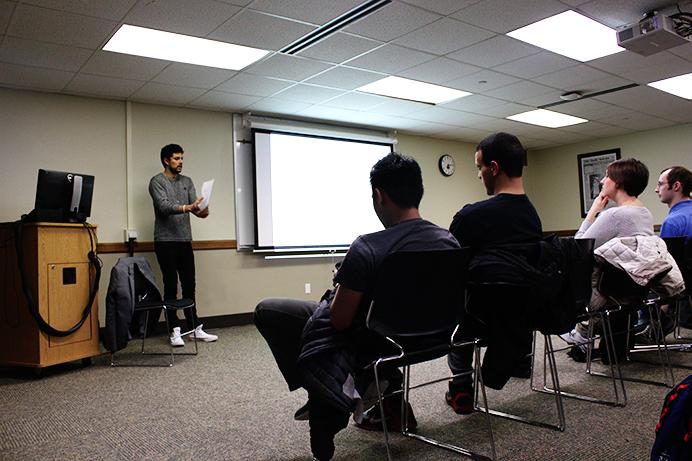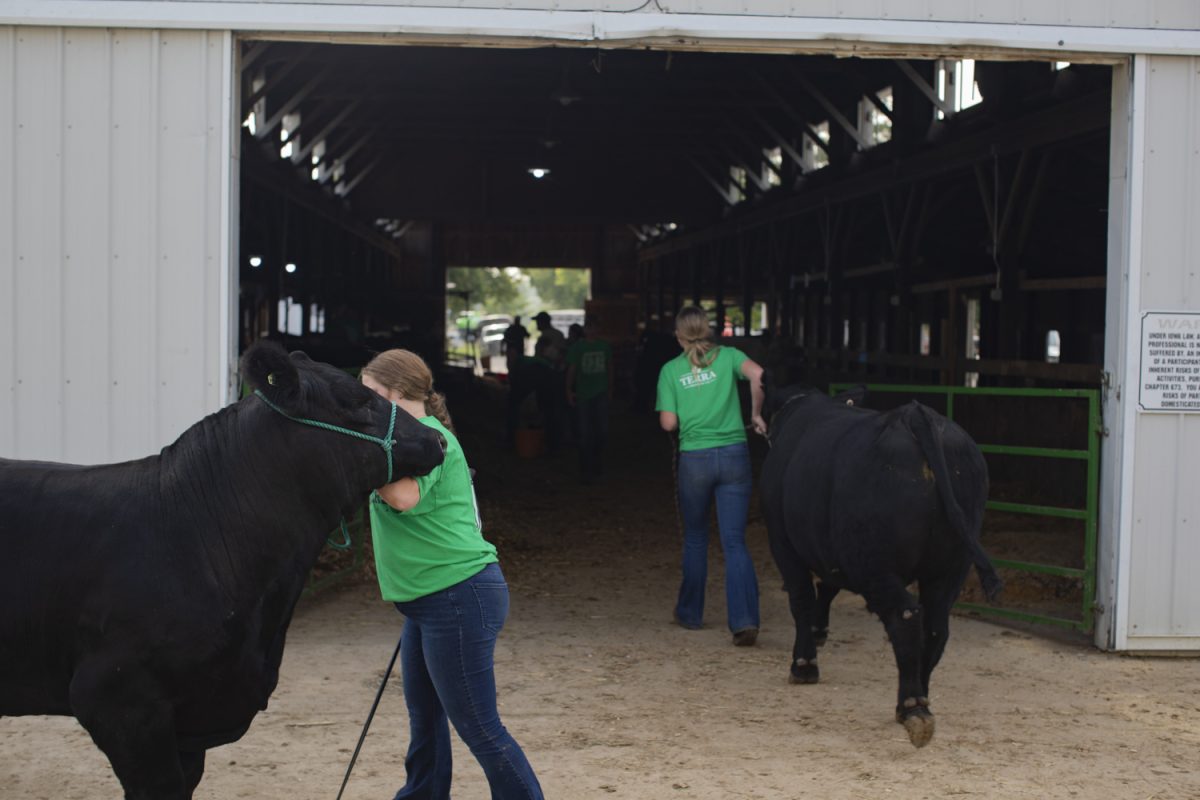By Madeleine Neal
Stereotype, stranger, inclusion, equality, Muslim, and non-Muslim.
These are the words that flashed across the PowerPoint presented by Ramsey Ali, a Ph.D. in the University of Iowa Counseling and Psychology Program.The UI Muslim Student Association continued its Islam Awareness week with a “Facts versus Fears” lecture in the IMU on Wednesday evening.
As the words flashed across the screen, Ali asked audience members to think of what they associated each word with.
Some audience members connected the word “non-Muslim” with “white.” Others associated the word “stranger” with “danger.” Some Muslim audience members identified the word “Muslim” with “me.”
UI junior Abdualrahman Ismail said cultural differences are noticeable, especially when considering others religions.
“A lot of people hear things and are intimidated by the media,” he said. “You don’t really get the full story from the media.”
Ismail’s parents, who were born in Yemen, are strong in their Muslim beliefs, he said.
“We invite people who are Islamophobic to come to our events and meet us,” he said. “That’s how you break the barriers.”
Ali offered an analogy at the event; Martians are to the United States Constitution as Islamophobics are to the Quran, he said.
Sharia Law, which Ali said means “the clear, well-trodden path to water,” has been banned in seven American states: North Carolina, Alabama, Arizona, Kansas, Louisiana, South Dakota, and Tennessee.
Many people of the Islamic faith believe Sharia Law is a personal relationship with God, not with the states, Ali said.
Ali encouraged attendees to consider cultural differences when viewing faith that belongs to others. An example he gave is the death penalty practiced in the U.S., which some might find offensive, just like others might not understand some Islamic practices.
This, he said, is why it is important to take context into consideration when viewing the Islamic faith.
For Ali, his presentation was an effort to lessen the fear of what it means to be Muslim, and to erase some of the misconceptions.
He began to notice hatred against the religion after the events on 9/11, he said.
“I didn’t know how to process that level of hate,” he said. “[I] felt more obligated to join and understand it.”
Anti-Muslim assaults, he said, are at their highest levels since 2001 — the most historic spikes were after 9/11 and after the 2015 attacks in Paris.
One-third of the victims of these hate crimes are under the age of 18, according to the Los Angeles District Attorney’s Office, Ali pointed out.
With today’s cyber-context, Ali said terms such as “jihad” and “Sharia Law” can be misconstrued.
For UI student Angie Dundee, who is seeking a master’s degree in social work, understanding Islam is important.
“I came [to the event] to learn about the culture,” she said. “I think if people can they should do this group.”







